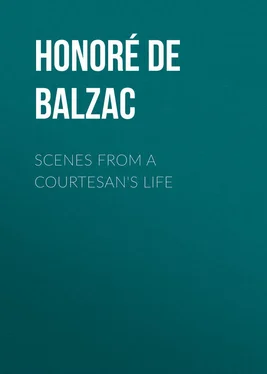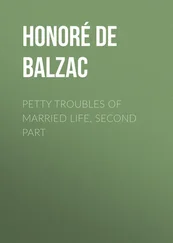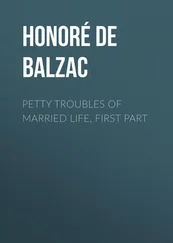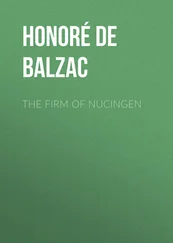Honoré Balzac - Scenes from a Courtesan's Life
Здесь есть возможность читать онлайн «Honoré Balzac - Scenes from a Courtesan's Life» — ознакомительный отрывок электронной книги совершенно бесплатно, а после прочтения отрывка купить полную версию. В некоторых случаях можно слушать аудио, скачать через торрент в формате fb2 и присутствует краткое содержание. Издательство: Иностранный паблик, Жанр: literature_19, foreign_antique, foreign_prose, на английском языке. Описание произведения, (предисловие) а так же отзывы посетителей доступны на портале библиотеки ЛибКат.
- Название:Scenes from a Courtesan's Life
- Автор:
- Издательство:Иностранный паблик
- Жанр:
- Год:неизвестен
- ISBN:нет данных
- Рейтинг книги:4 / 5. Голосов: 1
-
Избранное:Добавить в избранное
- Отзывы:
-
Ваша оценка:
- 80
- 1
- 2
- 3
- 4
- 5
Scenes from a Courtesan's Life: краткое содержание, описание и аннотация
Предлагаем к чтению аннотацию, описание, краткое содержание или предисловие (зависит от того, что написал сам автор книги «Scenes from a Courtesan's Life»). Если вы не нашли необходимую информацию о книге — напишите в комментариях, мы постараемся отыскать её.
Scenes from a Courtesan's Life — читать онлайн ознакомительный отрывок
Ниже представлен текст книги, разбитый по страницам. Система сохранения места последней прочитанной страницы, позволяет с удобством читать онлайн бесплатно книгу «Scenes from a Courtesan's Life», без необходимости каждый раз заново искать на чём Вы остановились. Поставьте закладку, и сможете в любой момент перейти на страницу, на которой закончили чтение.
Интервал:
Закладка:
“Motame,” said he in an undertone, “have I ever laughed at all at your passions, that you should laugh at mine? A goot frau should help her husband out of his difficulty vidout making game of him like vat you do.”
From the description given by the old banker, Lucien had recognized his Esther. Much annoyed that his smile should have been observed, he took advantage of a moment when coffee was served, and the conversation became general, to vanish from the scene.
“What has become of Monsieur de Rubempre?” said the Baroness.
“He is faithful to his motto: Quid me continebit?” said Rastignac.
“Which means, ‘Who can detain me?’ or ‘I am unconquerable,’ as you choose,” added de Marsay.
“Just as Monsieur le Baron was speaking of his unknown lady, Lucien smiled in a way that makes me fancy he may know her,” said Horace Bianchon, not thinking how dangerous such a natural remark might be.
“Goot!” said the banker to himself.
Like all incurables, the Baron clutched at everything that seemed at all hopeful; he promised himself that he would have Lucien watched by some one besides Louchard and his men – Louchard, the sharpest commercial detective in Paris – to whom he had applied about a fortnight since.
Before going home to Esther, Lucien was due at the Hotel Grandlieu, to spend the two hours which made Mademoiselle Clotilde Frederique de Grandlieu the happiest girl in the Faubourg Saint-Germain. But the prudence characteristic of this ambitious youth warned him to inform Carlos Herrera forthwith of the effect resulting from the smile wrung from him by the Baron’s description of Esther. The banker’s passion for Esther, and the idea that had occurred to him of setting the police to seek the unknown beauty, were indeed events of sufficient importance to be at once communicated to the man who had sought, under a priest’s robe, the shelter which criminals of old could find in a church. And Lucien’s road from the Rue Saint-Lazare, where Nucingen at that time lived, to the Rue Saint-Dominique, where was the Hotel Grandlieu, led him past his lodgings on the Quai Malaquais.
Lucien found his formidable friend smoking his breviary – that is to say, coloring a short pipe before retiring to bed. The man, strange rather than foreign, had given up Spanish cigarettes, finding them too mild.
“Matters look serious,” said the Spaniard, when Lucien had told him all. “The Baron, who employs Louchard to hunt up the girl, will certainly be sharp enough to set a spy at your heels, and everything will come out. To-night and to-morrow morning will not give me more than enough time to pack the cards for the game I must play against the Baron; first and foremost, I must prove to him that the police cannot help him. When our lynx has given up all hope of finding his ewe-lamb, I will undertake to sell her for all she is worth to him – ”
“Sell Esther!” cried Lucien, whose first impulse was always the right one.
“Do you forget where we stand?” cried Carlos Herrera.
“No money left,” the Spaniard went on, “and sixty thousand francs of debts to be paid! If you want to marry Clotilde de Grandlieu, you must invest a million of francs in land as security for that ugly creature’s settlement. Well, then, Esther is the quarry I mean to set before that lynx to help us to ease him of that million. That is my concern.”
“Esther will never – ”
“That is my concern.”
“She will die of it.”
“That is the undertaker’s concern. Besides, what then?” cried the savage, checking Lucien’s lamentations merely by his attitude. “How many generals died in the prime of life for the Emperor Napoleon?” he asked, after a short silence. “There are always plenty of women. In 1821 Coralie was unique in your eyes; and yet you found Esther. After her will come – do you know who? – the unknown fair. And she of all women is the fairest, and you will find her in the capital where the Duc de Grandlieu’s son-in-law will be Minister and representative of the King of France. – And do you tell me now, great Baby, that Esther will die of it? Again, can Mademoiselle de Grandlieu’s husband keep Esther?
“You have only to leave everything to me; you need not take the trouble to think at all; that is my concern. Only you must do without Esther for a week or two; but go to the Rue Taitbout, all the same. – Come, be off to bill and coo on your plank of salvation, and play your part well; slip the flaming note you wrote this morning into Clotilde’s hand, and bring me back a warm response. She will recompense herself for many woes in writing. I take to that girl.
“You will find Esther a little depressed, but tell her to obey. We must display our livery of virtue, our doublet of honesty, the screen behind which all great men hide their infamy. – I must show off my handsomer self – you must never be suspected. Chance has served us better than my brain, which has been beating about in a void for these two months past.”
All the while he was jerking out these dreadful sentences, one by one, like pistol shots, Carlos Herrera was dressing himself to go out.
“You are evidently delighted,” cried Lucien. “You never liked poor Esther, and you look forward with joy to the moment when you will be rid of her.”
“You have never tired of loving her, have you? Well, I have never tired of detesting her. But have I not always behaved as though I were sincerely attached to the hussy – I, who, through Asie, hold her life in my hands? A few bad mushrooms in a stew – and there an end. But Mademoiselle Esther still lives! – and is happy! – And do you know why? Because you love her. Do not be a fool. For four years we have been waiting for a chance to turn up, for us or against us; well, it will take something more than mere cleverness to wash the cabbage luck has flung at us now. There are good and bad together in this turn of the wheel – as there are in everything. Do you know what I was thinking of when you came in?”
“No.”
“Of making myself heir here, as I did at Barcelona, to an old bigot, by Asie’s help.”
“A crime?”
“I saw no other way of securing your fortune. The creditors are making a stir. If once the bailiffs were at your heels, and you were turned out of the Hotel Grandlieu, where would you be? There would be the devil to pay then.”
And Carlos Herrera, by a pantomimic gesture, showed the suicide of a man throwing himself into the water; then he fixed on Lucien one of those steady, piercing looks by which the will of a strong man is injected, so to speak, into a weak one. This fascinating glare, which relaxed all Lucien’s fibres of resistance, revealed the existence not merely of secrets of life and death between him and his adviser, but also of feelings as far above ordinary feeling as the man himself was above his vile position.
Carlos Herrera, a man at once ignoble and magnanimous, obscure and famous, compelled to live out of the world from which the law had banned him, exhausted by vice and by frenzied and terrible struggles, though endowed with powers of mind that ate into his soul, consumed especially by a fever of vitality, now lived again in the elegant person of Lucien de Rubempre, whose soul had become his own. He was represented in social life by the poet, to whom he lent his tenacity and iron will. To him Lucien was more than a son, more than a woman beloved, more than a family, more than his life; he was his revenge; and as souls cling more closely to a feeling than to existence, he had bound the young man to him by insoluble ties.
After rescuing Lucien’s life at the moment when the poet in desperation was on the verge of suicide, he had proposed to him one of those infernal bargains which are heard of only in romances, but of which the hideous possibility has often been proved in courts of justice by celebrated criminal dramas. While lavishing on Lucien all the delights of Paris life, and proving to him that he yet had a great future before him, he had made him his chattel.
Читать дальшеИнтервал:
Закладка:
Похожие книги на «Scenes from a Courtesan's Life»
Представляем Вашему вниманию похожие книги на «Scenes from a Courtesan's Life» списком для выбора. Мы отобрали схожую по названию и смыслу литературу в надежде предоставить читателям больше вариантов отыскать новые, интересные, ещё непрочитанные произведения.
Обсуждение, отзывы о книге «Scenes from a Courtesan's Life» и просто собственные мнения читателей. Оставьте ваши комментарии, напишите, что Вы думаете о произведении, его смысле или главных героях. Укажите что конкретно понравилось, а что нет, и почему Вы так считаете.












